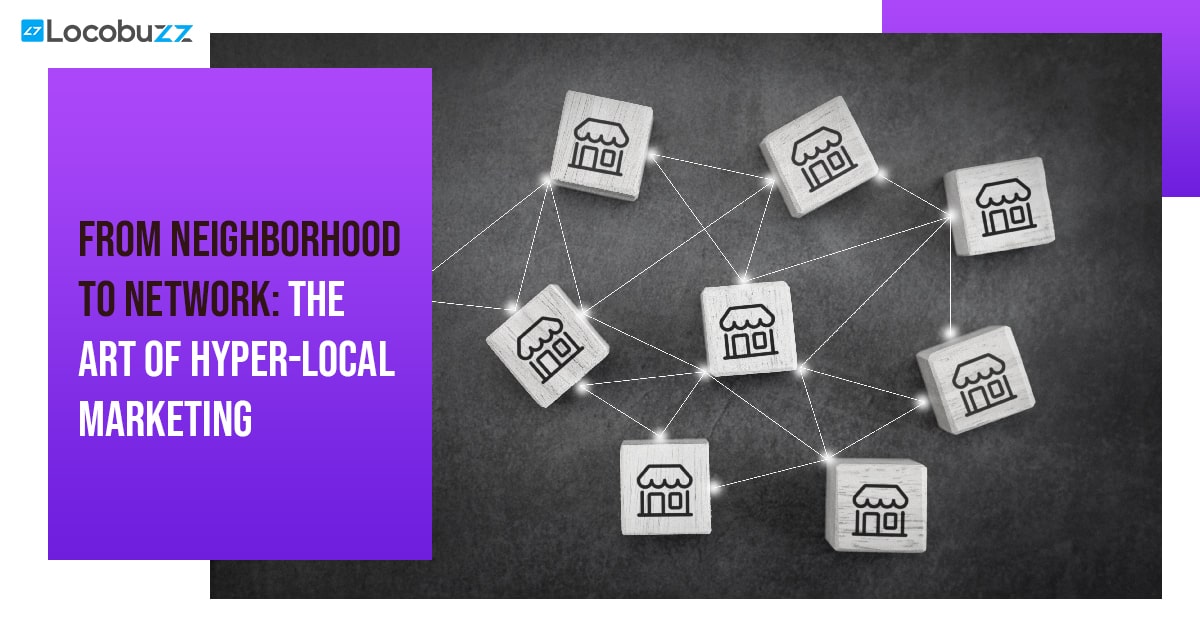What is Social Media Management and its benefits?

Introduction
Regardless of how you approach social media management, whether, with the support of a digital marketing agency or a toolset, it’s important to know more than the definition of social media management. You want to know what it includes and how you can make it a success for your business.
So, this article covers all you need to know about managing your social media profiles and learning the fundamentals of social media marketing. Continue reading to get started.
What is Social Media Management?
The process of developing and releasing content, tracking interaction and mentions, building a community of customers and influencers, and reporting and analyzing the results of your efforts are referred to as social media management. A company needs to do social listening and monitoring to know about the brands image in the minds of general public. Various available sentiment analysis tools can be used for this purpose. Nowadays people expect replies the very next second, so manually doing this process is practically not possible. So there are social media chatbots that can do this work with ease.
This method can comprise just one or even more than a dozen channels, ranging from Facebook to YouTube, depending on the company’s aims. Regardless of how many social channels a company uses, social media management is a crucial part of any marketing strategy and may provide a significant return on investment. There needs to exist an omnichannel customer engagement strategy to collectively handle data from all the channels. An omnichannel solution provider like locobuzz can provide you with this strategy.

What are the benefits/reasons for implementing social media management?
Now we move towards benefits, you may use social media management to maintain track of your profiles and promotions. Your approach may be implemented in vain and yield no results if you don’t use good social media management. You won’t be able to master social media management overnight, but you can improve your plan by incorporating new social media management technologies.
So, unless you’re not troubled by the consequences you’re getting, it’s critical to take care of your social media management. There are various social media management tools that one can use.
Social media management offers several benefits, including:
- Cost: Social media is a cost-effective marketing strategy regardless of your marketing budget. Even social media advertising could be a cost-effective strategy to reach out to your target market.
- Global reach: Social media platforms such as Facebook and LinkedIn can connect you with people all over the world. To reach specific audiences, you may also leverage social media networks like Pinterest.
- Users: Including social media in your marketing strategy helps you to match your marketing efforts to user behavior. For example, 74% of people now consult social media before making a purchase.
- Performance: Marketers and business owners feel that social media marketing and advertising are effective. Companies can utilize social media to improve their brand, generate leads, and generate income.

Why do you need a Social Media Manager?
Any digital marketing strategy for your organization should include a specialized social media manager. Here are four reasons for this.
(a) The Social Landscape Is Always Changing
A social media manager could not only keep records of algorithm updates and new trends on the platform, but also adjust your strategy and content to match these changes.
(b) Engagement in Social Media Is Necessary
A social media manager may and should be watching the brand’s pages at all times, not only for online reputation management but also for gaining extra information that might benefit your company.
(c) Protect Your Reputation and Assist Your Clients
Hiring a social media manager with vast experience in this field is crucial, as a social media manager can help moderate and handle any issue that would otherwise have turned into a disaster if a less-experienced person had been assigned to the position.
(d) Growing Your Audience
Having a wide audience can help spread the word, which can help you expand your social media following, as well as your leads and money.
(e) Reporting & Tracking
Having a social media manager in charge of your entire campaign can help you improve your results.
Locobuzz is a social media analytics and customer experience management platform that can be used to listen to and respond to the online buzz generated in a brand’s digital ecosystem. With Locobuzz, brands garner real-time insights about their product, service, consumers and competitors – especially for brand managers who wish to leverage insights to strengthen and measure marketing effort.
Social Media Content Creation
The process of organising, generating, and spreading entertaining and helpful information on social media platforms in order to engage users and attract new ones is known as social media content production. It requires creating a variety of content types that are tailored to the specific social media platform and target audience, such as text, images, videos, and graphics.
Consider the following approaches and tips to help you create content for social media:
1. Determine your goals: Decide what you want to achieve with your social media presence. Having precise objectives, whether they be to improve brand awareness, increase website traffic, or generate leads, will guide your content development strategy.
2. Determine your target market: Recognise your market’s qualities, interests, and preferences. You can create content that appeals to them and encourages interaction with their assistance.
3. Pick the appropriate social media channels: Each social media outlet has a unique audience and content. Select the platforms where your target audience is most engaged and where the types of content you intend to distribute (such as images, videos, and articles) would function best.
4. Make a schedule: By doing so, you can retain consistency and stay on track. Consider the frequency and timing of your postings to maximise interaction.
5. Create fascinating and valuable content: Pay extra attention to creating content that will assist your audience. This can include instructive content, amusing media, motivating messages, business insights, or behind-the-scenes glimpses. Use eye-catching graphics and witty captions to draw attention and encourage conversation.
6. Use a range of material types: To keep your audience engaged, experiment with different content formats. This category includes images, movies, infographics, polls, experiments, live videos, tales, and user-generated content. By catering to different interests, several formats might help you diversify your material.
7. Use stories to emotionally engage your audience: Using stories to emotionally engage your audience is a terrific tactic. Create stories that will resonate with your target audience and are aligned with your brand’s ideals. Use storytelling techniques to make your material more approachable and memorable.
8. Encourage interaction: The whole aim of social media is to encourage participation and conversation. Encourage your audience to like, comment, share, and re-post your content. To establish a sense of community, offer questions, hold rewards or contests, host live Q&A sessions, and respond to comments as soon as possible.
9. Monitor and assess performance: Monitor the performance of your social media content. Aspects such as reach, engagement, click-through rates, and conversions should be considered. Analyse the data to identify what is effective and to guide future content creation.
10. Iterate and adjust: Social media algorithms and trends are constantly changing. Keep up to date on the latest user behaviour, trends, and platform updates. Iterate based on audience feedback and performance metrics, try out new ideas, and tweak your content strategy as needed.
Keep in mind that in order to develop strong social media content, you must be consistent, authentic, and beneficial to your audience. Experiment, make notes on the results, and gradually enhance your strategy.
How to manage social media profiles
To manage social media profiles effectively, a determined approach and consistent effort are required. Here are some tips for good social media management:
1. Establish defined goals. Make a choice about the goals of your social media presence. Do you want to generate leads, engage with customers, attract traffic to your website, or raise brand awareness? Your social media strategy will be directed by specific, measurable goals.
2. Recognise and understand your target audience. Learn about your target market’s qualities, interests, and preferences. This data will allow you to create content that appeals to them and adjust your strategy for each platform as needed.
3. Choose the right platforms: Not every social media network is ideal for every sort of business. Select platforms that are appropriate for your target market and business objectives. Platforms such as Facebook, Instagram, Twitter, LinkedIn, or YouTube may be appropriate depending on your niche.
4. Design a content plan. Plan your content ahead of time to maintain a regular presence. Make a content calendar outlining the types of text, images, videos, and links you’ll share. Make certain that your content is valuable to your audience, relevant, and engaging.
5. Interact with your audience: Because social media is meant to be social, attempt to interact with your followers. Respond quickly to comments, texts, and mentions, and encourage conversation. Engage in postings relevant to your industry to build relationships and enhance your profile.
6. Monitor and review performance: use Locobuzz social media analytics tools to gauge your performance indicators. Keep an eye on key metrics such as reach, involvement, click-through rates, and conversions. Examine this data to evaluate what works, and then adjust your strategy as needed.
7. Use automation and scheduling tools: If you want to save time and ensure consistent publishing, consider using social media management tools that allow you to pre-schedule your content. Workflow optimisation software such as Hootsuite, Buffer, or Sprout Social can be beneficial.
8. Stay up to speed on trends and algorithm changes: Because social media platforms are constantly evolving, stay up to date on the latest features, trends, and algorithm updates. With the assistance of this knowledge, you may optimise your content strategy and stay one step ahead of the competition.
9. Maintain a consistent brand voice: Develop a brand voice that is congruent with the identity and values of your organisation. This will help people recognise you across all of your social media sites.
10. Experiment and adapt constantly: Don’t be afraid to try out new methods and content types. Pay attention to how your audience reacts and make changes as needed. Because social media is a dynamic environment, be prepared to alter your strategy to gain the greatest results.
Keep in mind that successful social media management needs dedication, tenacity, and a willingness to learn from failures. By implementing these tips, you can successfully develop an online presence and communicate with your target market.
Team member management
Although challenging, leading a team of social media specialists can be rewarding. Here are some tips for efficiently managing team members on social media:
1. Clearly define roles and responsibilities: Clearly define the roles and responsibilities of each team member. This eliminates confusion and overlaps by ensuring that everyone understands their roles and areas of expertise.
2. Define clear objectives and expectations: Define clear objectives and expectations for your team members. Set KPIs that are in line with your social media strategy. This clarifies what is expected of everyone and serves as a measure for success.
3. Promote efficient communication: Leading a team necessitates excellent communication. Encourage members of the team to communicate honestly and openly. Set up regular in-person and online team meetings to review progress, solve problems, and share information. Use collaboration tools such as team chat systems or project management software to make communication easier.
4. Provide guidance and advice: Social media platforms and methods are constantly evolving. By giving ongoing guidance and training, you can keep your team members up to date on the latest trends, technologies, and methods. Encourage lifelong learning and provide resources for professional development.
5. Delegate responsibilities effectively: Assign duties based on individual talents and knowledge. Assign assignments to team members based on their interests and skills. By dividing responsibilities correctly, you may boost team motivation and efficiency.
6. Encourage: Encourage innovation and originality because they are critical to the success of social media. Encourage your team members to solve problems creatively, experiment, and share fresh ideas. Encourage a welcoming, cooperative environment in which team members can freely express their ideas.
7. Provide constructive criticism: Provide constructive feedback to your team members on a regular basis. Recognise their accomplishments and, if necessary, provide growth guidance. Feedback must be detailed, meaningful, and aimed at improving.
8. Encourage cooperation and collaboration: Encourage team members to collaborate and work as a team. Encourage a culture in which individuals are comfortable exchanging expertise, assisting one another, and working together to achieve common goals. Encourage cross-functional collaboration with other departments such as marketing, content development, and customer service.
9. Recognise and respect successes: Recognise and honour the accomplishments of your team members. Thank them publicly for their contributions, either through team communications or internal media. Consider implementing an incentive or reward system to promote and appreciate their hard work.
10. Track and assess performance: Be sure to track and evaluate each team member’s performance on a regular basis. Monitor the success of their campaigns and activities by using social media management and analytics tools. Based on data-driven insights, provide comments and advice to improve performance.
By implementing these tactics, you may successfully manage your team of social media professionals and achieve success with your social media management activities.
Reputation management
Reputation management is the practise of influencing and managing how the general public sees a person, business, or brand. It comprises monitoring and altering the online and offline reputations in order to maintain a positive reputation and minimise any potential negative consequences.
Some key elements and approaches of reputation management are as follows:
1. Online Reputation Monitoring: Check online platforms such as social media, review sites, news stories, and blogs on a regular basis to see what is being written about you or your brand.
2. Search Engine Optimisation (SEO): Modify your internet presence to boost positive content and push undesirable or negative stuff down search engine results pages.
3. Content management: Create and distribute high-quality content that shows your achievements, knowledge, and positive characteristics. This can include posting frequently for your blog, participating in dialogues in your field, and communicating with your social media following.
4. Social Media Management: Manage your social media accounts actively by reacting quickly to messages and comments, resolving client issues, and fostering positive interaction with your audience.
5. Review and Feedback Management: Encourage satisfied consumers to leave positive feedback and swiftly rectify any concerns or negative feedback. Negative reviews can be addressed professionally and constructively to demonstrate your commitment to client satisfaction.
6. Crisis management: Develop a plan to deal with potential disasters or bad things happening. This includes keeping an eye on the problem, intervening quickly to avoid reputational damage, being open and honest with stakeholders, and taking action to make things right.
7. Influencer Relations: Develop relationships with influential people in your field or neighbourhood who can promote your brand and help you develop a strong reputation.
8. Maintain open lines of communication with stakeholders like as clients, employees, investors, and the media. Open and honest communication can help with both building trust and managing expectations.
9. Legal Considerations: In circumstances where erroneous or damaging information is being shared, legal action may be required to protect your reputation. Seek legal counsel to fully understand your options and rights.
Remember that reputation management is an ongoing endeavour that requires consistent work and focus. To maintain a good reputation in today’s highly connected and information-driven world, it is critical to be proactive, honest, and responsive.
FAQs
1. Why is Social Media Important?
When you use social media for your business, you may communicate directly with your customers. This level of intimacy can have a favorable impact on how current and potential customers perceive your company.
2. What social platforms should I be using?
It’s easy to get caught up in the buzz surrounding new social media platforms, but each one demands time, effort, and money to efficiently fulfill your company objectives. To begin, pick one or two that make the most sense and write regular, high-quality postings to capitalize on them. More precise advice may be found in our blog post about selecting the proper social media networks for your business.
3. Why should you outsource Social Media Management?
If you’re not sure where to begin when it comes to promoting your business online, outsourcing Social Media Management can be incredibly beneficial.
4. What are some of the most common issues with social media marketing campaigns?
Many businesses fail to provide content that is appropriate for each channel. While cross-posting on Facebook and Instagram might be beneficial, we recommend at the very least updating your post descriptions for each platform.
You align with user expectations by making sure your content is optimized for certain platforms. This gives your company the appearance of being social media savvy, which is a type of social proof.
5. Do you have any tips for managing social media marketing?
A successful social media marketing approach has a lot of moving elements. To keep track of all your assets in one spot, we recommend using a planning tool like our free social media calendar. You might also use social media management platforms like Loomly or Sprout Social, which allow you to schedule future postings.

Conclusion
To summarize everything discussed so far, if you want to communicate with your customers, social media is the place to be. Going social has a lot of benefits and a few drawbacks.
Comparing them necessitates making a deliberate selection since social media must be managed properly and with certain objectives in mind. Choosing the right platform and planning your approach are both important aspects of social media marketing.
It might be difficult to choose the right social network to promote your business because not all of them share the same beliefs or take the same approach. It’s even more difficult to keep track of several social channels and all of the incoming user messages.
That’s why there is a range of help desk tools that may help you handle all of your messages in one place, making managing all of your social media platforms a breeze. To summarize, social media marketing, it is a portal into the digital world that allows you to connect with your clients in a meaningful way.

















